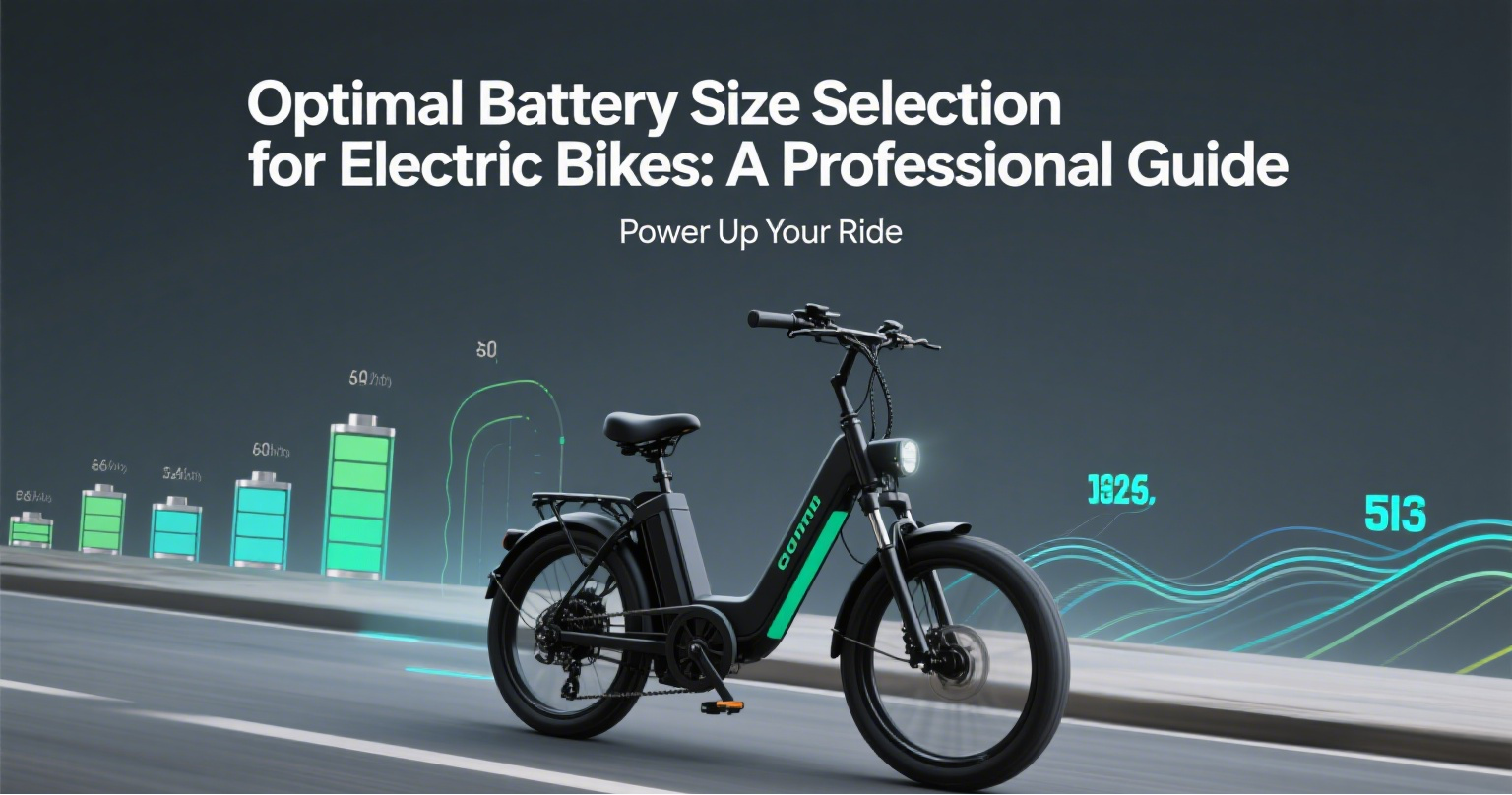Basic Concepts of Electric Bike Battery Size
Battery size typically refers to the physical dimensions and capacity (measured in ampere-hours, Ah). A larger capacity means a longer theoretical range, but also leads to increased size and weight, affecting the bike’s handling and comfort.

Key Factors Affecting Battery Size Selection
When choosing a battery size, it’s essential to consider:
- Space limitations of the bike’s design
- Required range (short-distance vs. long-distance travel)
- Load and power demands of the bike
- User preferences between range and portability

Common Electric Bike Battery Sizes and Capacity Options
Image Title: Comparison Chart of Common Battery Capacities
Image Alt: Size and capacity comparison of 36V and 48V batteries
Image Description: Range and size illustrations of batteries with different voltages and capacities
- Small-capacity batteries (under 10Ah): Best for lightweight, short-range models with 20–40 km range
- Medium-capacity batteries (10–15Ah): Ideal for daily commuting with 40–70 km range
- High-capacity batteries (15Ah+): Suitable for long-distance or heavy-load use with over 70 km range
Additionally, common voltage ratings such as 36V and 48V influence both battery size and range performance.
How to Choose the Right Battery Size Based on Application
- City commuter bikes: Recommended 36V 10–15Ah batteries for moderate range and balanced weight
- Folding e-bikes: Prioritize lightweight, small-capacity batteries for easy transport
- Mountain e-bikes: Require high-capacity, high-voltage batteries for climbing power and extended range
- Cargo e-bikes: Need larger-capacity batteries to support longer operation and heavy loads

How Battery Size Affects Bike Performance
While large-capacity batteries improve range, they also increase total weight, which can impact handling agility and acceleration. Choosing the right size ensures a balance between portability and range—critical for both design and procurement.
Conclusion
Selecting the proper battery size should be based on user needs, bike structure, and performance goals. A well-planned battery strategy, aligned with market positioning and product design, ensures supply stability and customer satisfaction.
Choosing the right electric bike battery size is key to improving product competitiveness and user experience. Apsenx offers customizable lithium battery solutions with a wide range of sizes and capacities to help businesses create differentiated, high-performance products.


Leave a Reply